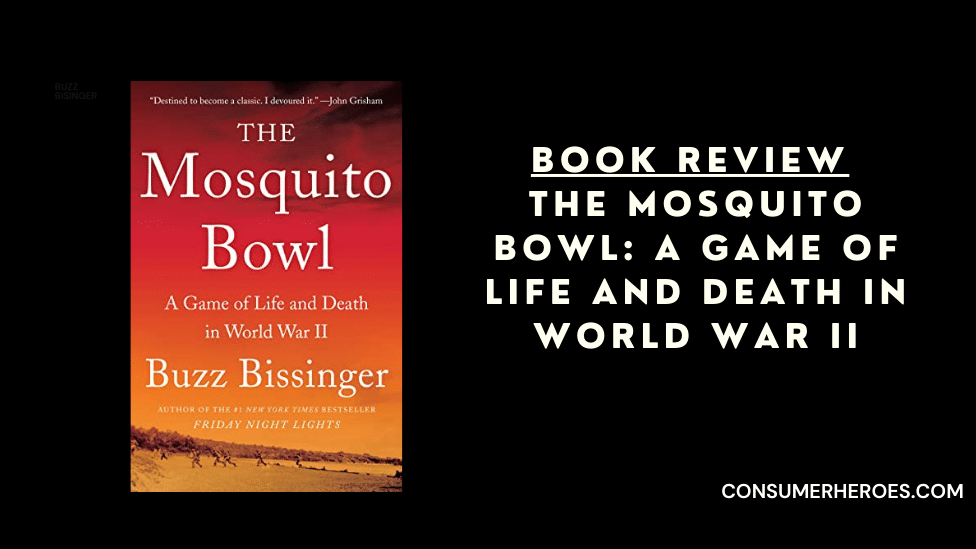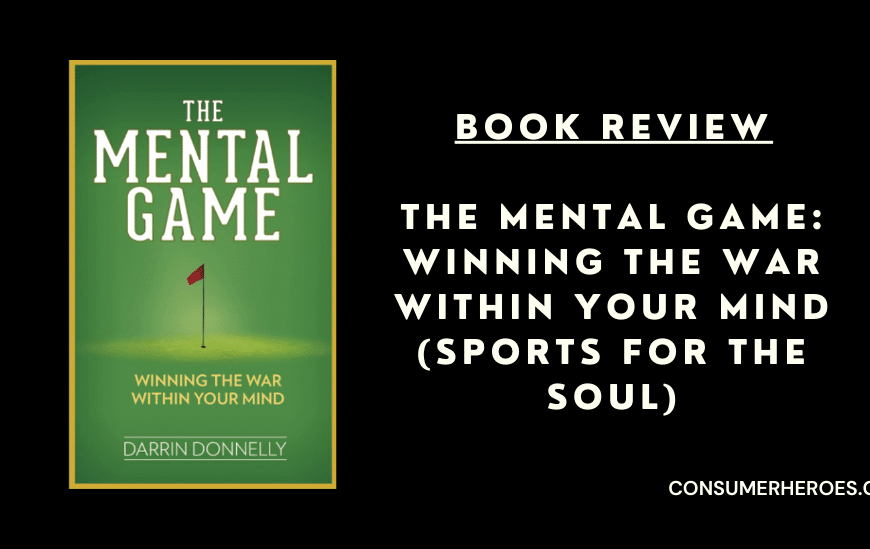“The Mosquito Bowl: A Game Of Life And Death In World War II” is a non-fiction book that explores the lives of several athletes who served in the Pacific theater during World War II. Written by Buzz Bissinger, author of Friday Night Lights and Three Nights in August, the book delves into the untold story of college football players who fought and died in the war. The Mosquito Bowl provides a unique perspective on the war, highlighting the experiences of these athletes who put their lives on hold to serve their country.
Bissinger’s background in sports journalism is evident in the book, as he expertly weaves together the stories of these athletes with the larger context of the war. The book is a tribute to the men who fought in the war, and their sacrifices are not forgotten. The Mosquito Bowl, a football game played by Marines on Okinawa on Christmas Eve, serves as a backdrop for the larger story of the war and the athletes who fought in it.
Overall, The Mosquito Bowl is a powerful and moving account of the lives of these athletes and their experiences during World War II. Bissinger’s writing is clear and concise, and his research is thorough. The book is a must-read for anyone interested in the history of the war and the experiences of those who fought in it.
Key Takeaways
- The Mosquito Bowl is a non-fiction book that explores the lives of college football players who fought and died in World War II.
- Written by Buzz Bissinger, the book provides a unique perspective on the war and highlights the sacrifices of these athletes.
- The book is a moving tribute to the men who fought in the war and is a must-read for anyone interested in the history of the war.
Author’s Background
Buzz Bissinger is a Pulitzer Prize-winning journalist and author, best known for his book “Friday Night Lights,” which was later adapted into a successful television series. Bissinger has also written several other books, including “Three Nights in August,” “A Prayer for the City,” and “Father’s Day.”
Bissinger was born in New York City in 1954 and grew up in the suburbs of Philadelphia. He graduated from the University of Pennsylvania and began his career as a journalist at the Philadelphia Inquirer, where he won a Pulitzer Prize for his investigative reporting.
In addition to his work as a journalist and author, Bissinger has also been a contributing editor to Vanity Fair and a columnist for The Daily Beast. He has received numerous awards for his writing, including the National Headliner Award and the American Bar Association’s Silver Gavel Award.
Bissinger’s latest book, “The Mosquito Bowl: A Game of Life and Death in World War II,” tells the untold story of college football players who fought and died in the Pacific theater during World War II. Through extensive research and interviews with surviving family members, Bissinger brings to life the stories of these athletes and their sacrifices for their country.
Overview of The Mosquito Bowl
The Mosquito Bowl, written by Buzz Bissinger, is a non-fiction book that tells the untold story of a football game played during World War II. The game was played on Guadalcanal between the 29th and Fourth Regiments of the Sixth Marine Division, which included a remarkable 16 players who had played college football.
The book is an extraordinary account of the game, which was played amid the horrors of war, and how it brought a brief respite from the constant fighting. The game was played on Thanksgiving Day in 1943, and it was a spirited, semi-organized football game that attracted a great deal of attention.
Bissinger’s book provides a fascinating look at the game and the players who participated in it. He tells the story of how the game came to be played, the players who were involved, and the impact it had on the war effort. The book is a testament to the power of sports to bring people together and provide a brief respite from the horrors of war.
The Mosquito Bowl is a well-researched and engaging book that provides a unique perspective on World War II. It is a must-read for anyone interested in the history of the war or the power of sports to bring people together.
World War II Context
The Mosquito Bowl: A Game of Life and Death in World War II by Buzz Bissinger is a book that explores the untold story of the Second World War. The book provides a unique perspective on the war by focusing on the game of football. When the Japanese attacked Pearl Harbor, college football was at the height of its popularity. However, the war changed everything, and many young men who played football were drafted into the military.
During the war, the United States Marine Corps fought their way through the islands of the Pacific until they reached and captured the island of Guadalcanal. This battle was crucial because it was the first time the United States had taken the offensive in the Pacific. The battle was also significant because it marked the beginning of a long and bloody campaign that would last for several years.
The Marines who fought on Guadalcanal faced many challenges, including a lack of supplies, food, and water. They were also exposed to diseases such as malaria and dengue fever, which were transmitted by mosquitoes. The conditions on Guadalcanal were harsh, and many Marines lost their lives.
In the midst of this chaos, a group of Marines decided to organize a football game. The game was played on a field that was carved out of the jungle, and the players wore makeshift uniforms. The game was called the Mosquito Bowl, and it was played on Thanksgiving Day in 1942. The game was a much-needed distraction for the Marines, and it provided them with a brief respite from the horrors of war.
In conclusion, the Mosquito Bowl was a unique event that took place during one of the most significant conflicts in human history. The game provided a glimpse into the lives of the Marines who fought on Guadalcanal, and it showed how football played a role in their lives, even in the midst of war.
Main Characters: The Mosquito Bowl
The Mosquito Bowl: A Game of Life and Death in World War II by Buzz Bissinger is a gripping account of the Second World War, focusing on the role of college football in boosting the morale of American soldiers. The book features several main characters, including:
Lt. Col. Harold Drew
Lt. Col. Harold Drew was the commanding officer of the 2nd Marine Division during the battle of Guadalcanal. He was a staunch advocate of using football as a means of boosting morale among his troops, and he was instrumental in organizing the Mosquito Bowl, a football game that took place on Guadalcanal in 1943. Drew was a charismatic leader who inspired his men to fight bravely in the face of adversity.
Sgt. Chuck Tatum
Sgt. Chuck Tatum was a Marine who played in the Mosquito Bowl. He was a talented football player who had played for the University of Arizona before enlisting in the Marines. Tatum was a tough, no-nonsense soldier who was respected by his fellow Marines for his courage and leadership.
Capt. Frank Bridget
Capt. Frank Bridget was the coach of the Marine Corps Raiders football team, which played in the Mosquito Bowl. Bridget was a former college football coach who had coached at the University of Virginia before enlisting in the Marines. He was a skilled coach who was able to motivate his players to perform at their best, even in the midst of war.
Pvt. Jack Lundberg
Pvt. Jack Lundberg was a Marine who played in the Mosquito Bowl. Lundberg was a talented football player who had played for the University of Minnesota before enlisting in the Marines. He was a tough, hard-nosed player who was respected by his fellow Marines for his grit and determination.
Overall, The Mosquito Bowl is a compelling account of the role of football in boosting the morale of American soldiers during World War II. The book provides a vivid portrait of the men who fought in the war and the challenges they faced both on and off the battlefield.
Plot Summary: The Mosquito Bowl
“The Mosquito Bowl: A Game Of Life And Death In World War II” is a non-fiction book written by Buzz Bissinger. The book tells the story of the 1943 football game played between the Marines of the Second Marine Division and the sailors of the USS North Carolina. The game was played in the middle of the Pacific Ocean on the island of Espiritu Santo, Vanuatu, during World War II.
The book is written in a narrative style, and it provides a detailed account of the game, including the events leading up to it and the aftermath. The author also provides a historical context for the game, explaining the significance of football during World War II and the role it played in boosting morale among the troops.
The game itself was played on a makeshift field, which was created by leveling out a coconut grove. The Marines won the game 13-0, but the score was not the most important part of the story. The game was a welcome distraction from the horrors of war, and it provided the troops with a much-needed break from the fighting.
The book also explores the lives of some of the players who participated in the game, including their experiences during the war and their lives after the war. The author provides a vivid picture of the conditions that the troops faced during the war, including the heat, the disease, and the constant threat of attack.
Overall, “The Mosquito Bowl” is a well-written and engaging book that provides a fascinating insight into a little-known aspect of World War II. The book is a must-read for anyone interested in military history, football, or the human experience during times of war.
Critical Analysis
“The Mosquito Bowl: A Game of Life and Death in World War II” is a gripping account of an extraordinary event that took place during World War II. The book is written by Buzz Bissinger, the Pulitzer Prize-winning journalist who is also the author of “Friday Night Lights” and “Three Nights in August.”
Bissinger’s writing style is engaging and immersive, and he does an excellent job of bringing to life the characters and events of the story. His research is meticulous, and he draws on a wide range of sources to provide a comprehensive and nuanced account of the game and its significance.
One of the strengths of the book is its exploration of the cultural and historical context in which the game took place. Bissinger provides a detailed and insightful analysis of the role of football in American society during the war years, and he shows how the game served as a powerful symbol of resilience and hope in the face of adversity.
Another notable feature of the book is its focus on the human stories behind the game. Bissinger’s vivid descriptions of the players, coaches, and spectators involved in the game bring a sense of intimacy and immediacy to the narrative, and they help to underscore the high stakes and emotional intensity of the event.
Overall, “The Mosquito Bowl” is a compelling and thought-provoking book that offers a unique perspective on the intersection of sports and war. It is a must-read for anyone interested in the history of football or World War II, and it is a testament to the enduring power of the human spirit in times of crisis.
Impact on Society
The Mosquito Bowl: A Game of Life and Death in World War II by Buzz Bissinger has had a significant impact on society by shedding light on the lives of several athletes who served in the Pacific theater during World War II.
The book explores the intersection of college football and the war, and how the game of football helped soldiers forget about the war for a day and enjoy watching or playing in the game. Bets were made, and a great deal of money changed hands.
The Mosquito Bowl also highlights the sacrifices made by these athletes, who put their dreams of playing professional football on hold to serve their country. The book shows how they were able to use their skills on the battlefield and how they were able to bring a sense of normalcy to their lives by playing football.
The book has been praised for its unique focus on World War II history, interweaving military heroics and college football. It has also been applauded for its vivid portrayal of the Pacific theater and the soldiers who fought there.
Overall, The Mosquito Bowl has had a significant impact on society by providing a new perspective on World War II and highlighting the sacrifices made by the soldiers who fought in the Pacific theater.
Comparative Study
The Mosquito Bowl: A Game of Life and Death in World War II by Buzz Bissinger is a unique book that examines the intersection of college football and the Pacific Theater of World War II. While there are many books about World War II and sports, The Mosquito Bowl stands out for its detailed exploration of a little-known event that had a significant impact on the morale of American soldiers.
Compared to other books about World War II and sports, The Mosquito Bowl is unique in its focus on a single event. While books like Unbroken and The Boys in the Boat cover broader topics, The Mosquito Bowl provides a detailed look at a single football game that took place on a small island in the Pacific. This narrow focus allows Bissinger to delve into the personalities of the players and the impact that the game had on their lives.
Another way in which The Mosquito Bowl stands out is in its use of football as a metaphor for war. Bissinger draws parallels between the strategies used in football and those used in war, highlighting the ways in which the two are interconnected. This approach adds depth to the book and makes it more than just a straightforward account of a football game.
In terms of writing style, The Mosquito Bowl is similar to Bissinger’s other works, such as Friday Night Lights and Three Nights in August. Bissinger’s prose is clear and concise, and he has a talent for bringing his subjects to life. However, some readers may find his writing style to be overly dramatic at times.
Overall, The Mosquito Bowl is a well-researched and engaging book that sheds light on an overlooked aspect of World War II history. While it may not be for everyone, those who are interested in sports or military history will find it to be a worthwhile read.
Conclusion: The Mosquito Bowl
In “The Mosquito Bowl: A Game Of Life And Death In World War II,” Buzz Bissinger tells the untold story of several athletes who served in the Pacific theater during World War II. The book sheds light on how college football played a role in the war and how it helped the marines forget about the war for a day.
Bissinger handles the combination of college football and World War II brilliantly, interweaving military heroics and college football. The book is a uniquely focused World War II history that brings rich details about the lives, hopes, dreams, and aspirations of the men who fought the war.
Overall, “The Mosquito Bowl” is an extraordinary, untold story of the Second World War in the vein of “Unbroken” and “The Boys in the Boat.” It is a must-read for anyone interested in World War II history or college football. The book is well-researched and well-written, and it is a fitting tribute to the athletes who fought and died in the war.







